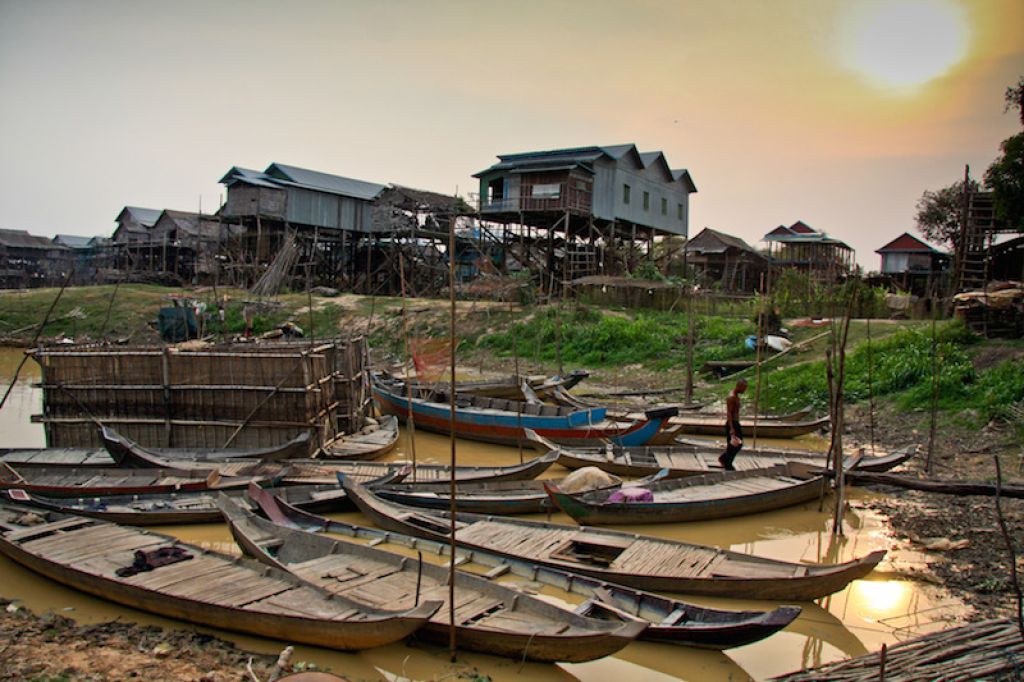ADB, Nordic Development Fund Help GMS Counter Climate Change Health Threat

In recent years, Cambodia and Lao PDR have reported more than 150,000 cases of dengue annually. Photo: ADB.
MANILA, PHILIPPINES (5 June 2015) – The Asian Development Bank (ADB) has approved a pioneering regional technical assistance initiative, with finance from the Nordic Development Fund (NDF), to help Cambodia, the Lao People’s Democratic Republic (Lao PDR), and Viet Nam respond to climate-induced health threats.
“The technical assistance is ADB’s first initiative in Southeast Asia responding to climate change impacts in the health sector and will provide data, policy guidance, and other support to strengthen health systems and services in the Greater Mekong Subregion [GMS] countries,” said Barbara Lochmann, Senior Social Sector Specialist in ADB’s Southeast Asia Department. “It will also help Cambodia, Lao PDR and Viet Nam identify the most cost-efficient investments to mitigate the excess health burden and related economic costs attributed to climate change."
The project is financed with a nearly $4.4 million equivalent grant from the NDF, administered by ADB, as well as in-kind counterpart support from the governments of Cambodia, Lao PDR, and Viet Nam. The technical assistance will run for more than 3 years with an expected completion date of December 2018.
Climate change is now recognized as a significant global public health threat, with rising temperatures and changing rainfall patterns sparking a surge in vector-borne diseases like malaria and dengue in the GMS. In recent years, Cambodia and Lao PDR have reported more than 150,000 cases of dengue annually.
The assistance will support collaboration among regional academic and research institutions, and public health and environment authorities to build up science-based knowledge and data on climate threats. It will provide training to public health staff on climate-related challenges, and promote activities for community groups—including women—to strengthen community resilience and preparedness for emergencies. Support will also be given to government officials and regional academic and research agencies to increase their awareness of investment opportunities for climate change adaptation interventions.
The project will complement the work of other ADB operations and development partners to harmonize national and regional surveillance, and response mechanisms to climate-sensitive diseases.
“It suits NDF well to take part in these types of efforts that seek to support exchange between institutions and continents on this important topic. The outcome of this work is catalytic for climate and health investments, and thereby benefits ADB, the World Bank, NDF, and other development banks and agencies, as well as other climate change financiers,” said Martina Jägerhorn, Country Program Manager at NDF. “In addition, NDF is pleased to support the needs of Cambodia, Lao PDR, and Viet Nam to strengthen national and regional capacity to cope with the adverse health impacts of climate change.”
The assistance is among the first initiatives under ADB's Operational Plan for Health 2015-2020, which was launched today. The plan offers comprehensive solutions to individual countries and Asia and the Pacific overall, to advance universal health coverage and to address the health needs of their populations.
ADB, based in Manila, is dedicated to reducing poverty in Asia and the Pacific through inclusive economic growth, environmentally sustainable growth, and regional integration. Established in 1966, it is owned by 67 members—48 from the region. In 2014, ADB assistance totaled $22.9 billion, including cofinancing of $9.2 billion.
Last Updated: 5 June 2015
